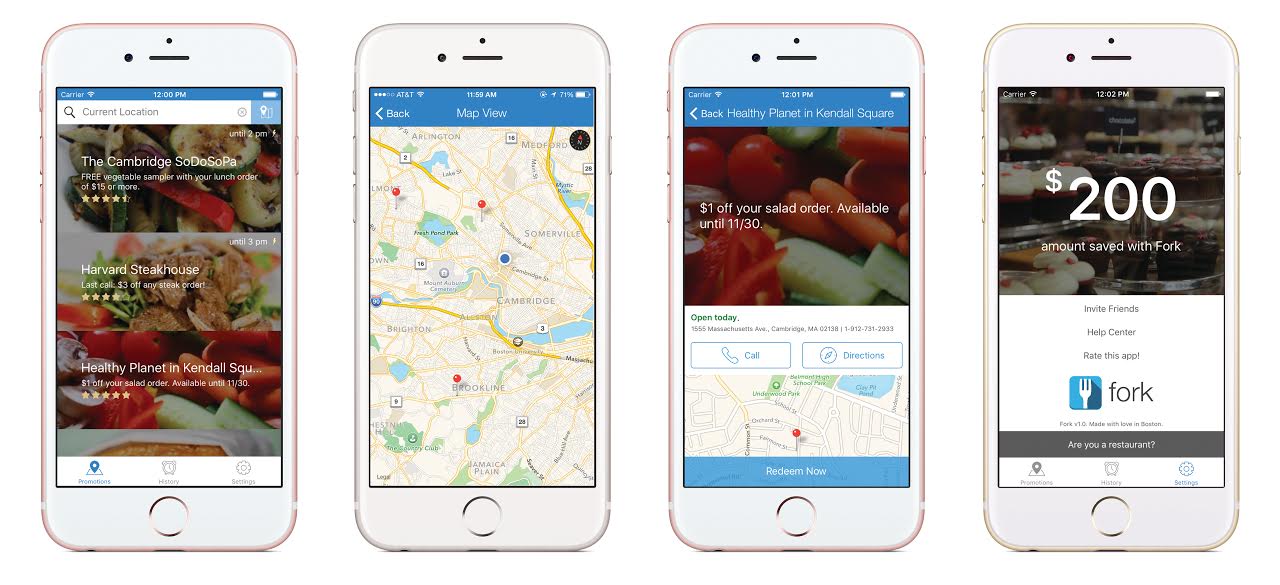Fork App Wants ‘to Make Groupon and LivingSocial Outdated’

Image Provided
Forget Groupon and LivingSocial. Harvard-born startup Fork is developing a simpler solution to finding local restaurant deals.
“We want to make Groupon and LivingSocial outdated,” says cofounder Felix Wong. “We think this version of online promotion sucks.”
The Fork app is a mobile coupon book focused on offering location-based promotions. The key differentiator is that it’s free for restaurants to use, as opposed to Groupon, which keeps 50 percent of the revenues from each deal. The app also eliminates the need for any premature planning from the diner.
“Groupon complicates the service,” Wong says. “They force users to think about whether they should buy the promotion at first. That really involves me having to plan weeks, if not days, in advance. I need to be able to know I can commit to it at that time.”
Aside from the coupon service, Fork is implementing “lightning deals,” or rather limited edition promotions restaurants can offer during down hours to attract more customers. Users will be able to open Fork and see a picture gallery of restaurants sorted by distance and hourly deals. When they are ready to redeem a coupon, they simply show it to the waitstaff, “who will know what to do.” And just like that, the coupon is gone.
“Our vision is that Fork should be the easiest app you could ever use,” Wong explains.
Nearly 50 restaurants in Cambridge are already testing out that theory. Although slated to launch in spring 2016, Fork is experimenting with 100 beta users around Harvard before opening up to the more than 3,000 others currently on their wait list.
The three cofounders—Wong, Xiawei Wang, and Kuriakin Zeng—started developing the app one year ago, after not knowing where to find local deals around Harvard. Wong and Wang are currently Harvard Ph.D. students, and Zeng is a recent graduate of the university’s computer science program. Given their Ivy League ties, it was only natural the founders focused Fork’s marketing efforts on college students first.
“We know what [college students are] looking for,” Wong says. “We have the connections to make this a reality at Harvard, MIT, and other schools in the Boston area.”
Once Fork sees success in Boston, the startup plans to expand to other Ivy League schools, such as Yale and Princeton. With the number of mobile coupon users expected to surpass one billion by 2019, the team is confident they can make Fork go viral.
“Fork will just be everyone’s coupon book,” Wong says.
When asked how they plan to make money, Wong acknowledges that they don’t—not in the next few months at least. If they continue to “attract a critical mass of users,” however, and learn how to leverage that data to help restaurants create more effective coupons, they envision potentially charging a dime or quarter for every coupon that’s redeemed. In the interim, the founders have explored raising seed funding “to take Yale by storm.”
And if they do, Fork will be one step closer to achieving the founders’ goal: dominating Groupon and LivingSocial.


